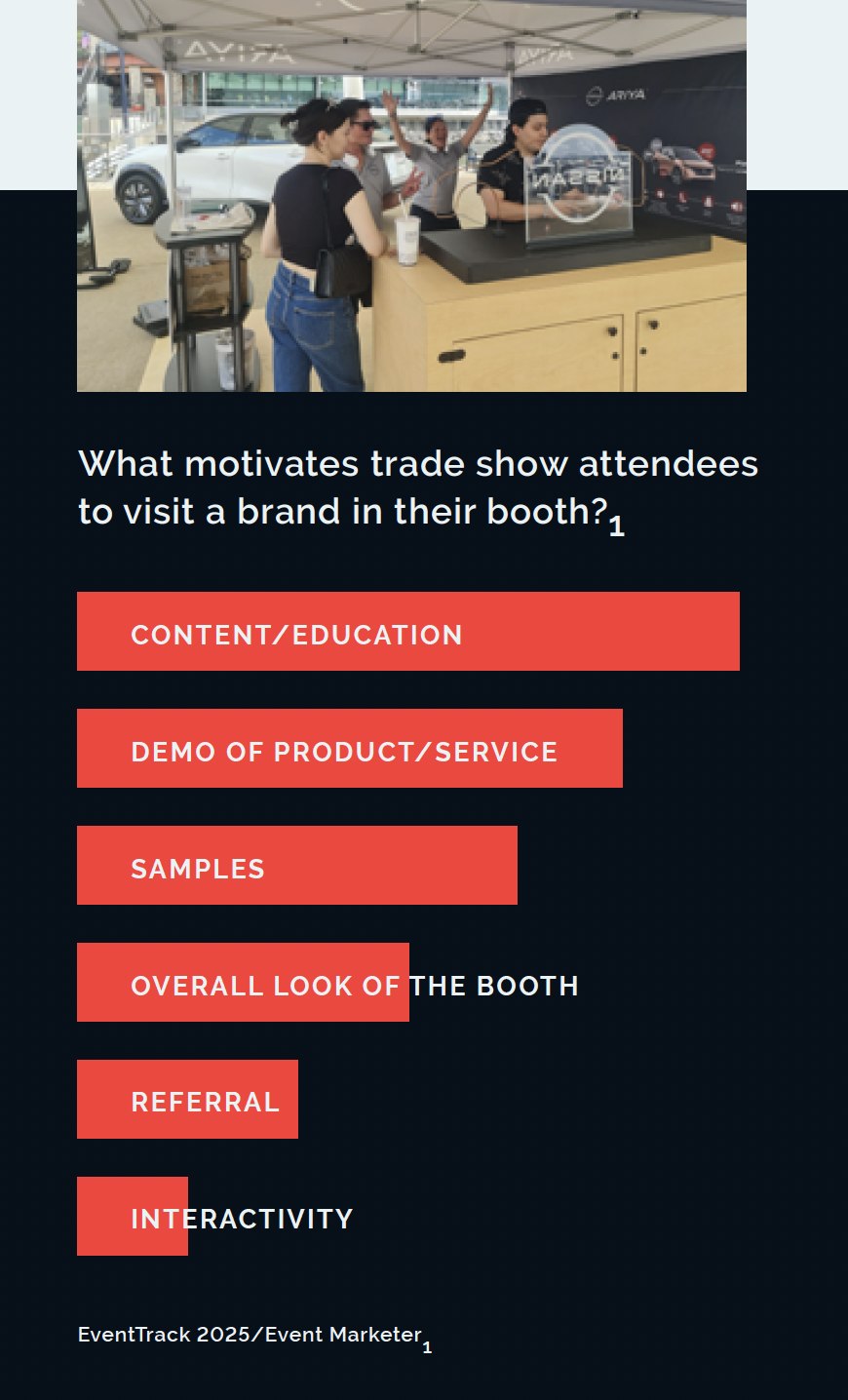Inspira’s Client Engagement Director Effie Gavrielidis Shares How to Build B2B Relationships through Experiential Marketing
By Inspira Marketing
May 7, 2025
By Inspira Marketing
May 7, 2025
At Inspira, we view every activation as an opportunity to spark something deeper. With our expertise in crafting connected brand experiences, we go beyond delivering campaigns—we create lasting relationships. By combining sharp strategy, bold creativity, and flawless execution, we help brands reach consumers in ways that matter. In our latest White Paper, Client Engagement Director Effie Gavrielidis shares how to build B2B relationships through experiential marketing.
INSPIRA: What differentiates B2B experiential events from B2C in terms of relationship building?
EFFIE: The foundation of relationships at B2B events is entirely different from those at B2C events because the goals and connections of the audiences vary. B2B relationships are built on personalized, one-on-one interactions and a deep understanding of a client’s unique business needs. These connections are nurtured over time to create mutual trust and value, often embedding the brand into the client’s internal processes or business strategies. It’s about delivering tailored solutions that directly address the client’s objectives and drive tangible business outcomes.
The B2B audience typically includes decision-makers and influencers within companies, and their approach to relationships tends to be more transactional and value-driven. They seek solutions that enhance profitability and operational efficiency.
On the other hand, B2C relationships lean heavily on emotional connections. These events focus on creating delightful, instantly gratifying experiences that foster brand affinity and loyalty. It’s about delivering memorable first impressions in fun and engaging ways to inspire repeat purchases.
To summarize, B2B events are designed to educate and empower attendees to align with their business needs, while B2C events are built to entertain and evoke emotional responses. Both paths aim to build loyalty, but the strategies differ based on the long-term value of B2B versus the immediate gratification of B2C.
INSPIRA: How can B2B companies use live experiences to deepen trust and loyalty with their partners?
EFFIE: Live experiences are an excellent opportunity for B2B companies to demonstrate their expertise, thought leadership, and commitment to their partners. Events such as panel discussions, roundtables on industry trends, and product demonstrations that highlight use cases and ROI can showcase the brand’s value.
Beyond this, these events provide a platform to show appreciation for business partners through unique networking opportunities and meaningful, industry-relevant experiences. By addressing the holistic needs of current and potential partners, these live experiences can motivate and inspire attendees, reinforcing trust and loyalty.
INSPIRA: What tactics are you seeing at B2B events that actually drive relationships rather than passive engagement?
EFFIE: Several tactics stand out. Local events that facilitate peer-to-peer connections have been highly effective. They create a sense of community and foster genuine relationships within the industry. Offering exclusive access to third-party events or incorporating non-traditional, unexpected activities can also help a brand stand out and create memorable experiences.
Hospitality plays a significant role, too. Thoughtful touches that make attendees feel valued can go a long way. Additionally, “choose your own adventure” or flexible agenda formats resonate well with B2B audiences, as they allow attendees to focus on what’s most relevant to them while respecting their limited time.

INSPIRA: What challenges and opportunities do you foresee for B2B experiential marketing in 2025?
EFFIE: One of the biggest challenges remains capturing attendees’ time and attention. With busy schedules and competing priorities, it’s crucial for B2B events to deliver a high-impact experience in a condensed timeframe. The challenge is to make every moment meaningful, packing as much value as possible into shorter engagements.
Another hurdle is breaking through the noise. With an increasing volume of events and endless demands on attention, standing out in the crowded B2B landscape will require creativity and innovation.
Measurement of success also poses a challenge. B2B leads often take time to nurture and convert, meaning ROI might not be immediately visible. This can make it difficult to demonstrate the value of events to stakeholders, especially when metrics like “building trust” are hard to quantify.
That said, these challenges present opportunities. By focusing on creative, tailored experiences and finding new ways to measure long-term relationship-building, brands can differentiate themselves and foster deeper connections with their audiences in 2025 and beyond.
Create creative tailored experiences, measure long-term relationship building to differentiate your brand and foster deeper connections. Learn how by downloading your copy of our Shaping Experiential Marketing Trends for 2025 White Paper HERE.